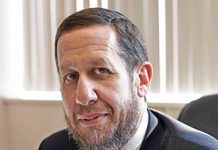German Chancellor Angela Merkel criticised far-right Alternative for Germany Party on the 29th anniversary of German reunification.
Merkel did not mention AfD, the largest opposition party, by name during a keynote speech in Kiel but referring to a government report, noted economic differences between east and west Germany where those in the east feel like second-class citizens.
AfD has strong support in east Germany where it enjoyed regional gains at elections last month.
Merkel made a point that there was no reason for verbal attacks on foreigners under a pretext of free speech as it threatened democracy in Germany.
Around 600 people attended a far-right rally in Berlin shortly after the address.
Merkel’s party and Social Democrat coalition partners have accused AfD of legitimising hate language that encourages violence.
AfD gained political capital after Merkel’s accepted some 1 million migrants in 2015.
Although they have attempted to distance themselves from far-right extremists, the fatal shooting of a pro-immigration conservative politician this year and rise in anti-Semitism have promoted debate in anti-immigrant speeches by some AfD leaders.
Developing her thoughts further, Merkel added, “It should never be the case that disappointment with politics, however significant, be accepted as a legitimate reason to marginalise, threaten or attack others because of their skin colour, religion, sex or sexual orientation.
“The values of our constitution must guide each and every debate in our country.
“In concrete terms this means, ‘Yes’ to open debate, ‘Yes’ to tough demands from politics, ‘No’ to intolerance, ‘No’ to marginalisation, ‘No’ to hate and anti-Semitism, ‘No’ to living at the expense of the weak and minorities”.
The report found under 40% of citizens felt reunification was worth it and under half were happy with democracy in Germany.
“A lot has been achieved in the past 29 years,” Merkel said.
“In the west as well as in the east, people are all in all happier with their lives than at any other moment since reunification. But we also know that this is not the whole truth.
“We must all learn to understand why reunification for many people in eastern states is not only a positive experience”.









